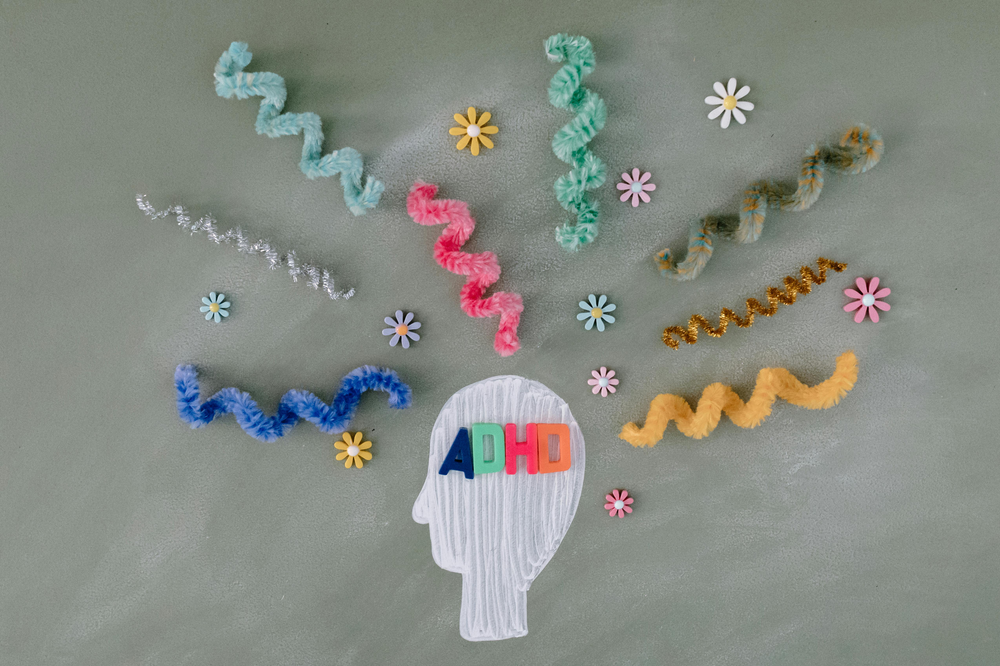Friendships are a cornerstone of human experience, enriching our lives in ways both profound and subtle. These connections offer companionship, support, laughter, and understanding, contributing significantly to our overall sense of well-being and fulfillment. Whether forged in childhood or discovered later in life, friendships play a vital role in shaping our identities and experiences.
Since friendships can have great influence in our lives, it’s important to learn how to pour your energy into the right kind of friendships.
First, What Does a Healthy Friendship Look Like?
Here’s some key elements of a healthy friendship that you may or may not know already, but regardless, it’s important to be reminded of them!
Mutual Respect: In a healthy friendship, there is a deep-seated respect for each other’s opinions, boundaries, and autonomy. Both friends value and appreciate each other as individuals, without trying to change or control one another.
Trust and Honesty: Trust is the foundation of any strong friendship. Healthy friendships are built on honesty, openness, and reliability. Friends feel comfortable confiding in each other, knowing that their words and feelings will be respected and kept in confidence.
Support and Empathy: Healthy friendships are characterized by genuine care and empathy. Friends offer support and encouragement during both good times and bad, celebrating each other’s successes and providing comfort during times of struggle.
Equality and Reciprocity: Healthy friendships thrive on a balanced give-and-take dynamic. Both friends contribute to the relationship, taking turns listening, supporting, and showing appreciation for each other. There is a sense of equality and fairness in how decisions are made, and responsibilities are shared.
Communication: Open and effective communication is essential in healthy friendships. Friends feel comfortable expressing their thoughts, feelings, and concerns without fear of judgment or reprisal. They actively listen to each other and strive to understand different perspectives.
Shared Values and Interests: While friends don’t need to have identical interests or beliefs, a healthy friendship often involves shared values and common interests that strengthen the bond between them. These shared experiences create opportunities for connection and growth.
Space for Individual Growth: In healthy friendships, friends respect each other’s need for personal space and individual growth. They encourage each other to pursue their passions, goals, and interests, even if they differ from their own.
Conflict Resolution: Disagreements and conflicts are inevitable in any relationship, but healthy friendships are characterized by constructive conflict resolution. Friends communicate openly, address issues directly, and work together to find mutually acceptable solutions. They prioritize preserving their friendship and resolving conflicts in a respectful and considerate manner.
Overall, a healthy friendship is a nurturing and supportive relationship that brings joy, fulfillment, and growth to both parties involved. It provides a safe and affirming space where individuals can be their authentic selves and thrive in each other’s company.
Are you in a Toxic Friendship? Recognize the Red Flags
Recognizing whether you’re in a toxic friendship can be challenging, as these relationships can sometimes be subtle and complex. However, there are several red flags to look out for that may indicate your friendship is toxic. Here are some common indicators:
Constant Criticism or Negativity: If your friend constantly criticizes you, belittles your accomplishments, or focuses on the negative aspects of your life, it may be a sign of toxicity.
Lack of Support: In healthy friendships, friends support and encourage each other. If your friend is unsupportive, dismissive of your feelings, or indifferent to your needs, it could be a red flag.
One-Sided Relationship: Healthy friendships involve mutual give-and-take, with both friends contributing to the relationship. If you find yourself constantly giving without receiving much in return, or if your friend only reaches out when they need something from you, it may be an imbalanced and potentially toxic dynamic.
Manipulative Behavior: Toxic friends may manipulate or control you to get their way. They may use guilt-tripping, gaslighting, or other manipulative tactics to maintain power and control in the relationship.
Jealousy or Competition: Healthy friendships are based on mutual trust and respect. If your friend constantly competes with you, feels jealous of your achievements, or tries to undermine your successes, it can create a toxic environment.
Boundary Violations: Respect for boundaries is crucial in any relationship. If your friend constantly crosses your boundaries, ignores your wishes, or makes you feel uncomfortable, it could be a sign of toxicity.
Drama and Conflict: While conflicts are a normal part of any relationship, constant drama and unresolved conflicts can be draining and indicative of a toxic friendship. If you find yourself frequently embroiled in arguments or feeling emotionally exhausted after interactions with your friend, it may be a sign that the friendship is unhealthy.
Feeling Drained or Stressed: Pay attention to how you feel after spending time with your friend. If you consistently feel drained, anxious, or stressed out, it may be a sign that friendship is taking a toll on your well-being.
It’s important to trust your instincts and prioritize your well-being in any relationship. If you recognize these red flags in your friendship, consider addressing your
concerns with your friend or seeking support from trusted loved ones or a therapist. Sometimes, ending or distancing yourself from a toxic friendship may be necessary for your emotional health and happiness.
The Healthy Versus Toxic Friendship: Using Examples
First, let’s start off with an example of two female friends who are involved in a healthy friendship:
Sarah and Maya have been friends since college. They share a deep mutual respect for each other’s opinions, values, and boundaries. Sarah and Maya communicate openly and honestly, discussing everything from their dreams and aspirations to their fears and insecurities without fear of judgment. They support each other wholeheartedly, celebrating each other’s successes and providing comfort and encouragement during challenging times. Despite their busy schedules, they make time to nurture their friendship, whether it’s grabbing coffee together or simply catching up over the phone. Their friendship is built on a foundation of trust, empathy, and laughter, creating a safe and uplifting space where both Sarah and Maya feel valued, accepted, and understood.
Now, let’s explore the dynamic of an unhealthy friendship between two guy friends:
Chris and Alex have been friends since childhood, but their relationship has become increasingly toxic over the years. Chris often criticizes Alex, making disparaging remarks about his appearance, intelligence, and life choices. Despite Alex’s attempts to address the hurtful behavior, Chris brushes off his concerns, dismissing them as oversensitive or unreasonable. The friendship feels one-sided, with Chris frequently demanding attention and validation from Alex while offering little support or empathy in return. Alex feels constantly drained and stressed after interactions with Chris, but he hesitates to distance himself out of fear of confrontation or loneliness. The dynamic between Chris and Alex is characterized by manipulation, disrespect, and emotional turmoil, creating a toxic environment that erodes their well-being and self-esteem.
Lastly, let’s compare the two examples:
In the healthy friendship between Sarah and Maya, there’s mutual respect, open communication, and genuine support. Both friends uplift and empower each other, creating a positive and affirming environment where they can thrive personally and emotionally. In contrast, the friendship between Chris and Alex is toxic, marked by criticism, manipulation, and emotional distress. Despite their history, the negative dynamics overshadow any positive aspects of the relationship, leaving Alex feeling depleted and undervalued. While Sarah and Maya’s friendship adds to the quality of their lives, Chris and Alex’s toxic dynamic wears down their well-being and compromises their happiness.
Take the time to reflect by asking yourself some guided questions…
Do I feel respected, supported, and valued in my friendships?
How do my friends communicate with me, and how do I communicate with them?
Do I feel comfortable expressing my thoughts, feelings, and concerns with my friends?
Are there any patterns of behavior or communication in my friendships that concern me?
Do I feel like I can be my authentic self around my friends?
Do my friends uplift and encourage me, or do they bring me down?
Take your time to answer these questions honestly and thoughtfully. Your answers can provide valuable insights into the dynamics of your friendships and help guide you in fostering healthy, fulfilling friendships.
To those who have recognized they’re in a toxic friendship – What’s Next?
There isn’t a one-size-fits-all answer here. Solutions can vary based on the context of your friendship. For that reason, take the time to decide which one may be the most suitable for you.
Reflect on Your Feelings: Take some time to reflect on how the friendship makes you feel and the specific behaviors or dynamics that are causing distress. Recognizing and acknowledging your emotions is the first step towards making positive changes.
Set Boundaries: Clearly communicate your boundaries with your friend and be firm about what behaviors are unacceptable to you. It’s important to assert yourself and prioritize your own well-being.
Have a Direct Conversation: If you feel comfortable, consider having a calm and honest conversation with your friend about your concerns. Use “I” statements to express how their behavior affects you and listen actively to their perspective. However, be prepared for the possibility that they may not respond positively or be willing to change.
Lead by Example: Model healthy behavior in friendship by showing respect, empathy, and support towards your friend. Be mindful of how your actions and words may impact the dynamics of the relationship.
Encourage Positive Changes: Offer constructive feedback and encouragement to your friend if you notice problematic behaviors. Suggest alternative ways of communicating or interacting that are more respectful and considerate.
Evaluate the Friendship: Take a step back and evaluate whether the friendship is truly adding value to your life. Consider whether the positive aspects of the friendship outweigh any negative or toxic behaviors.
Seek Outside Perspective: If you’re unsure about how to address the red flags or whether the friendship is salvageable, consider seeking advice from trusted friends, family members, or a therapist. They can offer perspective and support as you navigate the situation.
Create Distance: If the toxic behavior continues despite your efforts to address it, consider creating some distance from the friendship. This might involve spending less time with the person, setting firmer boundaries, or even ending the friendship if necessary for your well-being.
Remember that it’s okay to prioritize your own well-being and happiness. You deserve to be in relationships that are healthy, supportive, and uplifting. By taking proactive steps to address the toxic friendship, you’re taking an important step towards creating a more positive and fulfilling life for yourself.
If you’re struggling to cope with the effects of a toxic friendship or find it challenging to set boundaries, consider seeking support from a therapist at BYBS. Our therapists can provide personalized guidance and holistic strategies for those navigating difficult relationships.
Meet the Therapists
Areas of Expertise: stress management, anxiety, depression, trauma, grief/loss, family issues, life transitions, communication, women’s issues, family issues.
Through her compassionate and empathetic approach, Rochelle can help individuals navigate the complexities of friendship dynamics, empowering them to cultivate deeper connections and establish healthy boundaries. Rochelle uses mindfulness practices to facilitate self-awareness and enhance communication skills, enabling her clients to foster fulfilling and meaningful friendships.
Areas of Expertise: relationship issues, anxiety, depression, stress reduction/burnout, life transitions, chronic pain, spiritual health and wellness.
With a profound belief in the integration of spirituality and psychology, Nicole is specialized in guiding individuals through relationship struggles using a spiritual approach. Drawing from her diverse background in psychology, mindfulness practices, and spiritual traditions, Nicole offers a unique perspective on navigating the complexities of human connections.
If you would like to schedule a free 15-minute consultation with Rochelle Young or Nicole Malene, get started here.
Conclusion: Don’t Ignore the Red Flags!
Navigating the landscape of friendships requires a keen awareness of what constitutes a healthy versus toxic dynamic. Healthy friendships are built on mutual respect, trust, and support, fostering personal growth and happiness. Conversely, toxic friendships are characterized by manipulation, disrespect, and emotional draining, ultimately hindering one’s well-being.
It’s crucial not to dismiss red flags in friendships, as they often serve as warning signs of deeper underlying issues. Whether it’s consistent negativity, lack of boundaries, or constant criticism, recognizing these warning signs is essential for maintaining one’s mental and emotional health. By prioritizing self-awareness and setting boundaries, individuals can cultivate fulfilling relationships while safeguarding themselves from toxic influences. Remember, in the realm of friendships, it’s better to invest in quality over quantity, prioritizing those connections that uplift and empower us on our journey through life.
Alayna Dorfman






